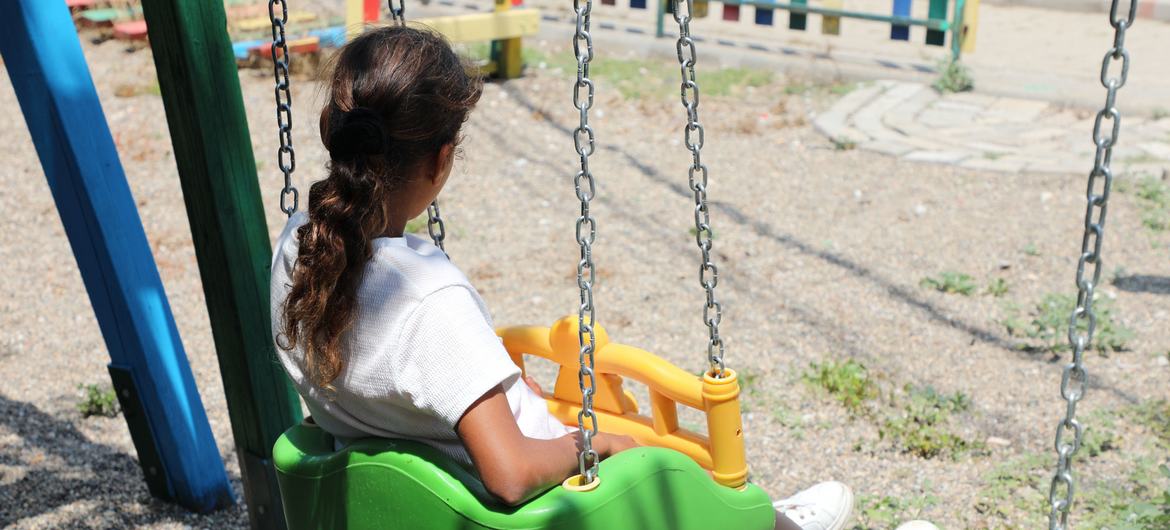
|
La trata de personas es un atropello contra los derechos humanos. Sin embargo, sigue presente en el mundo y convierte en pesadilla la vida de mucha gente. Para crear conciencia sobre el problema, la Asamblea General de la ONU estableció el Día Mundial contra la Trata en diciembre de 2013 y celebra cada 30 de julio desde 2014. Este año, la jornada se centra en la trata infantil, en vista de que el 33% de las víctimas del delito son menores de edad. La Oficina de la ONU contra la Droga y el Delito ( UNODC) explica aquí los principales aspectos sobre la trata infantil. |
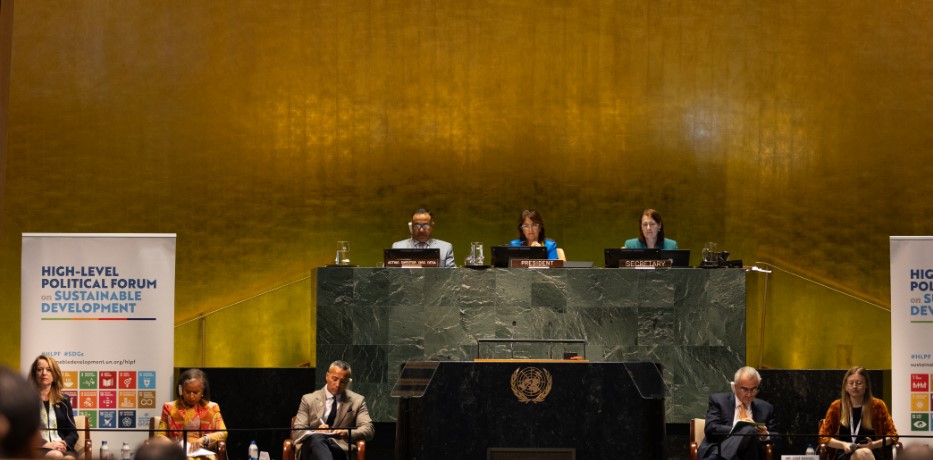
|
José Manuel Salazar-Xirinachs, Secretario Ejecutivo del organismo regional, tuvo una activa participación en varios eventos del foro mundial realizado en la sede de las Naciones Unidas, en los que compartió su visión para avanzar hacia un modelo de desarrollo más productivo, inclusivo y sostenible. |
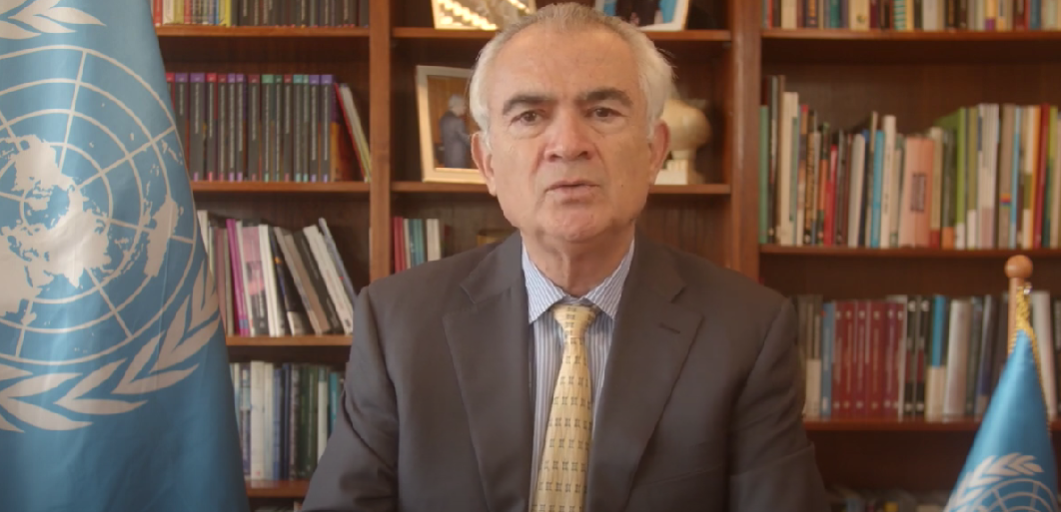
|
Palabras del Secretario Ejecutivo de la CEPAL, José Manuel Salazar-Xirinachs, en Reunión Especial del Consejo Económico y Social sobre los Sistemas de Cuidados y Apoyos realizada el 19 de julio de 2024.
La Comisión Económica para América Latina y el Caribe (CEPAL) reafirmó hoy su compromiso con una sociedad en la que los cuidados sean parte central de unas economías prósperas, sostenibles y justas, durante una reunión especial sobre los sistemas de cuidados y apoyos organizada por el Consejo Económico y Social de las Naciones Unidas (ECOSOC, por sus siglas en inglés) en Nueva York.
A través de un mensaje grabado, José Manuel Salazar-Xirinachs, Secretario Ejecutivo de la CEPAL, planteó que “el cuidado está en la base de la sostenibilidad de la vida, y es clave para alcanzar la justicia social y renovar el contrato social. El concepto de sociedad del cuidado entusiasma, nos convoca y renueva nuestras esperanzas para un futuro mejor”. |
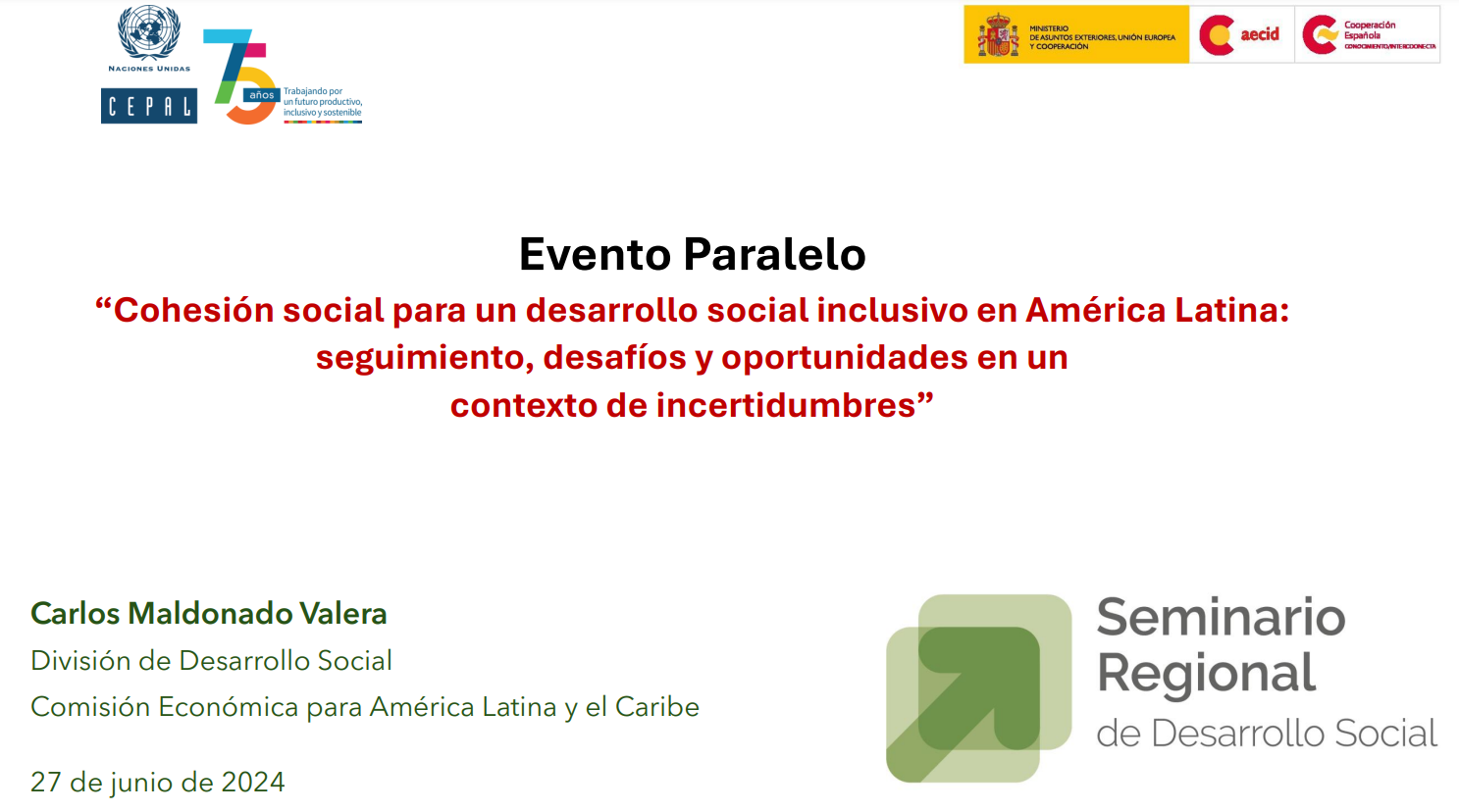
|
Video completo del evento "Cohesión social para un desarrollo social inclusivo en América Latina: seguimiento, desafíos y oportunidades en un contexto de incertidumbres", realizado el jueves 27 de junio de 2024 de forma paralela al Cuarto Seminario Regional de Desarrollo Social de la CEPAL (25-27 de junio, 2024).
|
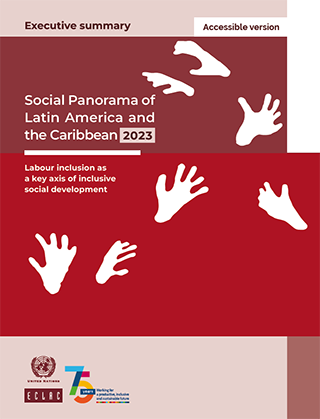
|
In this accessible version of the Social Panorama of Latin America and the Caribbean addresses the challenges of labour inclusion as a key axis for inclusive social development. Despite a recovery in social indicators in 2022 (reduction of poverty and inequality, recovery of employment), the region faces a double trap of low growth and high levels of poverty and inequality. Labour inclusion is key to combating poverty, reducing informality and inequality and moving towards inclusive social development. Gender gaps in labour market inclusion are driven by the unequal distribution of the burden of care work, which is largely borne by women. In the case of migrants, overqualification and discrimination also affect their labour market inclusion. The efforts made by countries in terms of investment in labour policies, which on average amount to 0.34% of GDP, are insufficient. What is needed is a shift from labour market access to labour market inclusion, ensuring access to quality employment, income above the minimum wage and to social protection, particularly for women and young people. |
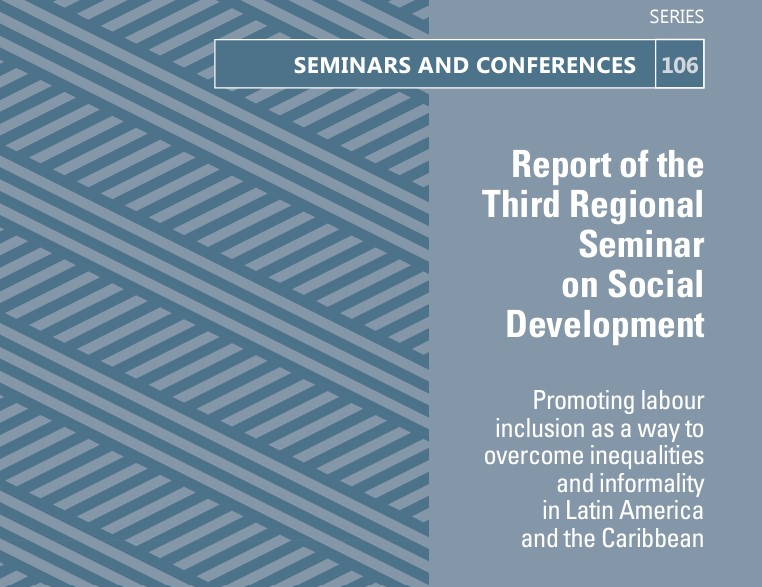
|
This document is the report of the Third Regional Seminar on Social Development “Promoting labour inclusion as a way to overcome inequalities and informality in Latin America and the Caribbean”. This seminar was organized by the Social Development Division of the Economic Commission for Latin America and the Caribbean (ECLAC) in collaboration with the International Labour Organization (ILO) and in partnership with the Government of Norway, the Ford Foundation and Deutsche Gesellschaft für Internationale Zusammenarbeit (GIZ), and was held from 27 to 29 June 2023. In its third edition, the Regional Seminar focused on providing a space for dialogue, reflection and sharing experiences on labour inclusion policies as a means of overcoming inequalities and informality in Latin America and the Caribbean. |
|

